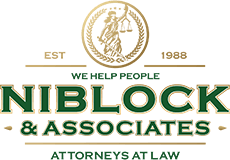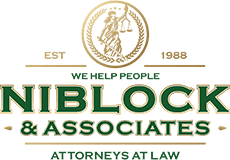Are you contemplating filing bankruptcy? If so, you should be aware of certain problems that can arise due to mistakes made prior to filing bankruptcy.
Countless debtors have hurt their bankruptcy cases due to mistakes that could have been avoided had they consulted a Little Rock bankruptcy attorney earlier. Common mistakes made by debtors prior to filing include:
- Using retirement funds to pay off a portion of your debt
- Transferring property out of your name prior to filing to avoid it becoming part of the bankruptcy estate
- Waiting too long to file and being unable to qualify for Chapter 7 as a result
- Ignoring lawsuits until after creditor has started garnishing wages or freezing bank accounts
- Paying preferential/inside creditors
- Racking up new debt
USING RETIREMENT FUNDS TO PAY OFF A PORTION OF YOUR DEBT
One of the most common mistakes debtors make prior to filing bankruptcy is depleting their retirement funds to pay off some of their debt. Many people avoid filing bankruptcy until the last possible moment because of its negative stigma. Some debtors are afraid they will never get credit again. Others have strong moral principles that make them feel obligated to pay no matter the circumstances. As a result, they use whatever assets they have to keep themselves current with their creditors.
Retirement assets are commonly used because they can be easily accessed and don’t affect your monthly budget. However, most people who do this usually end up in bankruptcy later and are now left with fewer retirement funds for their future. Retirement funds should not be used as a band aid in debt situations; if they don’t fix your debt issue completely, then you are better off not using those funds at all.
TRANSFERRING PROPERTY OUT OF YOUR NAME PRIOR TO FILING
Many debtors understand that they could lose an asset during a filing of a bankruptcy. In preparation for that, some debtors sell or transfer property out of their names. This can become an issue as the court requires you to disclose all property transfers made in the two years prior to the filing of your bankruptcy. A property transfer purposely made to avoid creditors of the bankruptcy estate could be seen as fraudulent and may result in loss of the property or result in money owed to the court.
WAITING TOO LONG TO FILE
This is one of the most common mistakes made by debtors. Most people do not want to file bankruptcy and will do anything to avoid it. Unfortunately, for some people, bankruptcy is unavoidable and delaying only makes it harder to qualify or results in more money being owed to the court. Delays can be easily avoided by consulting with a bankruptcy attorney prior to making the decision to file.
Another form of procrastination by the debtor is waiting until after the creditors have obtained a judgment. Upon a judgment being granted in the creditor’s favor, they will begin the collection phase. The collection phase usually involves two possibilities: wage garnishment or bank account freezes. Any debtor who has had their wages garnished or their bank accounts frozen can tell you the hassle they had to endure as a result of waiting too long. While both of these situations can be resolved, any money lost prior to filing is not recoverable.
PAYING INSIDE CREDITORS
If you are filing bankruptcy, you are telling the court that you cannot afford to pay your debts. However, you may have been paying selected debts accrued during the same period. That is what is referred to as paying “inside creditors.” If the court finds that you paid someone it deems to be an inside creditor, you may be required to pay the court the total amount you paid out to the inside creditor. If you are considering filing bankruptcy, consult with an attorney prior to making any repayments to family members or other inside creditors.
RACKING UP NEW DEBT
Some debtors decide to run up their credit cards prior to filing bankruptcy. You may think that filing bankruptcy eliminates all debts incurred prior to filing bankruptcy. While that can be true in many cases, there are certain situations where the debt will not be dischargeable. Newly accrued debt can be non-dischargeable, so understanding the rules is important.
Debtors make many mistakes; these are just the most common ones. To avoid repeating them, consult a knowledgeable Little Rock bankruptcy lawyer like Greg Niblock early about your debt troubles.


